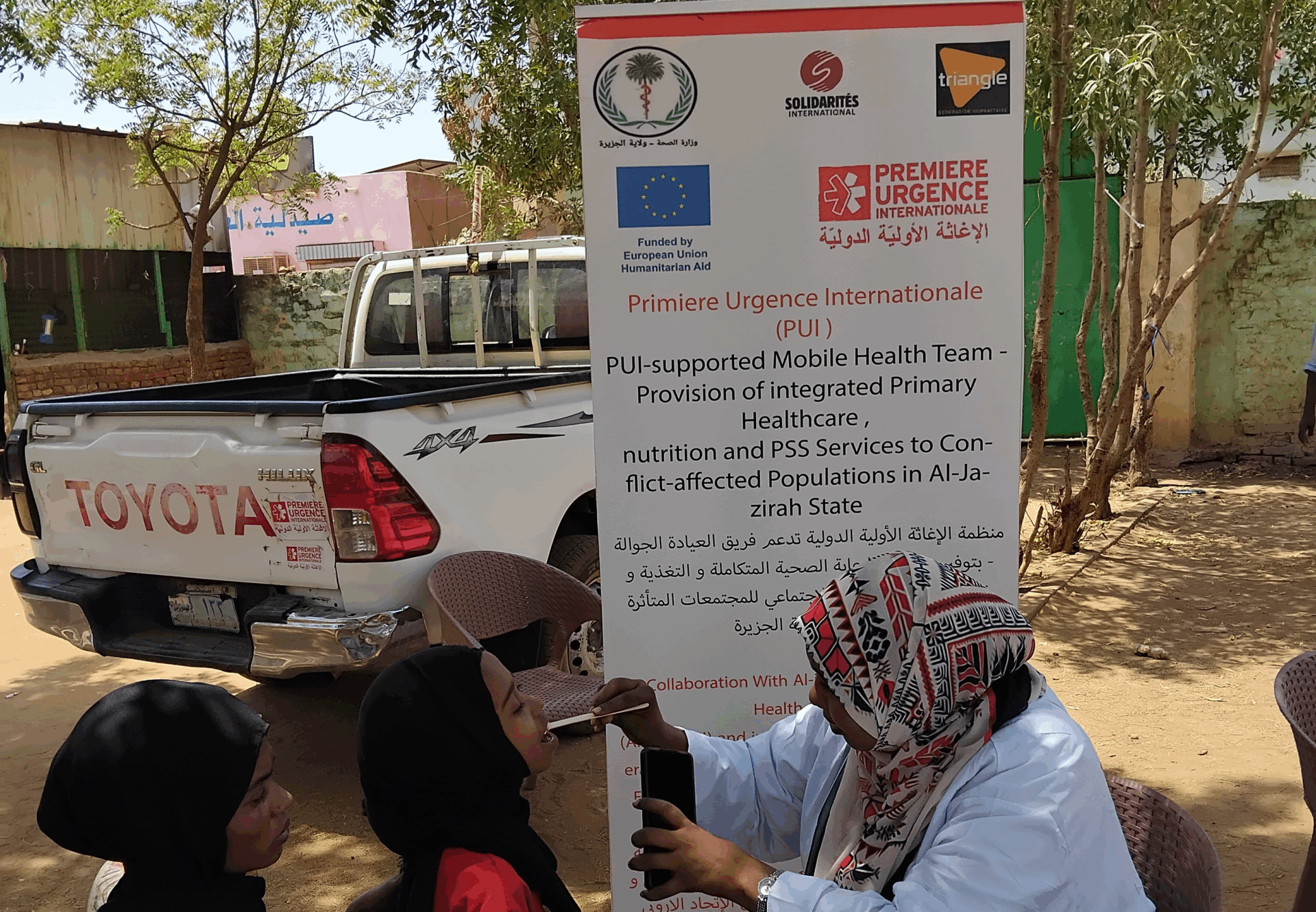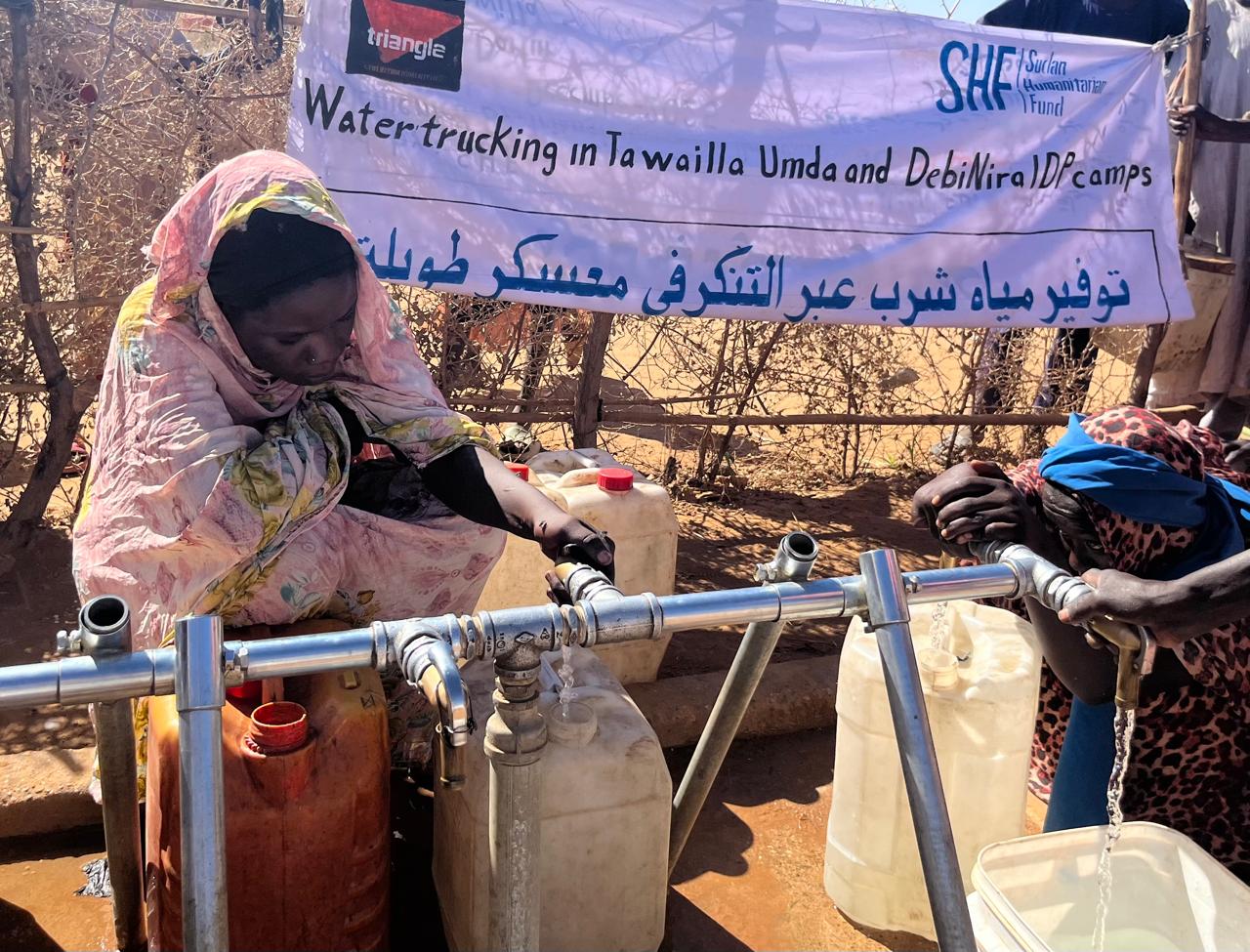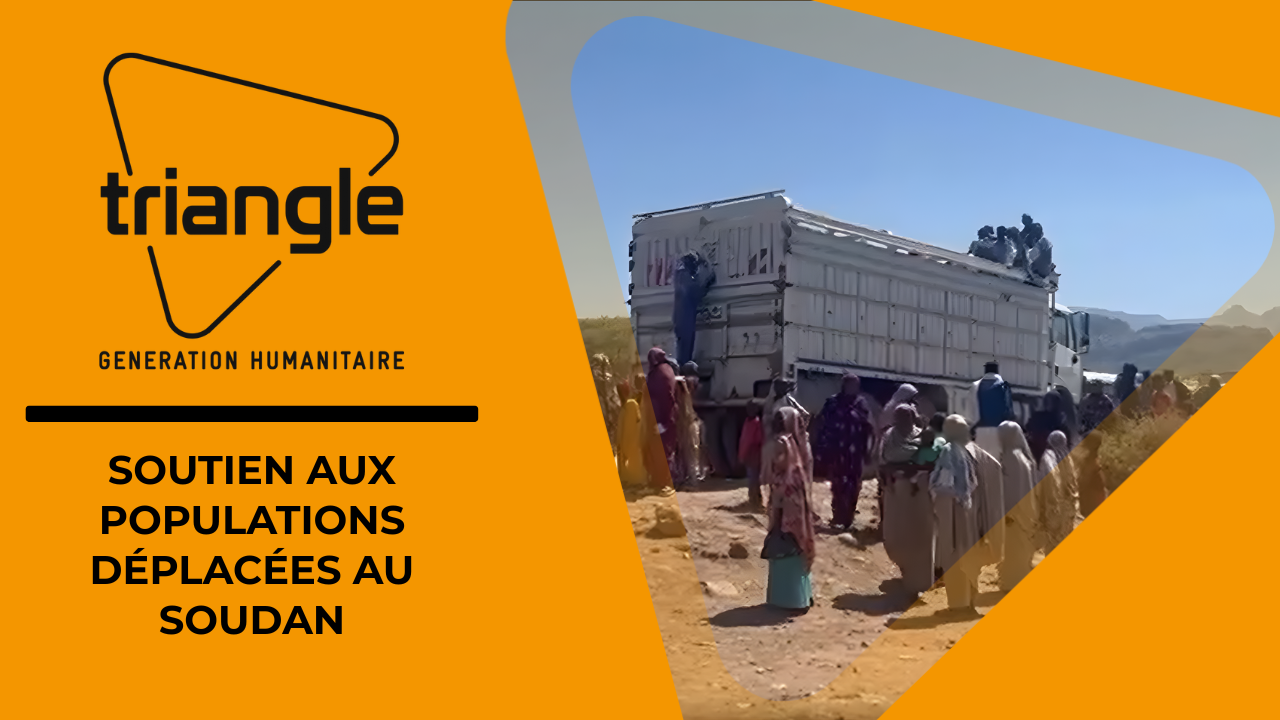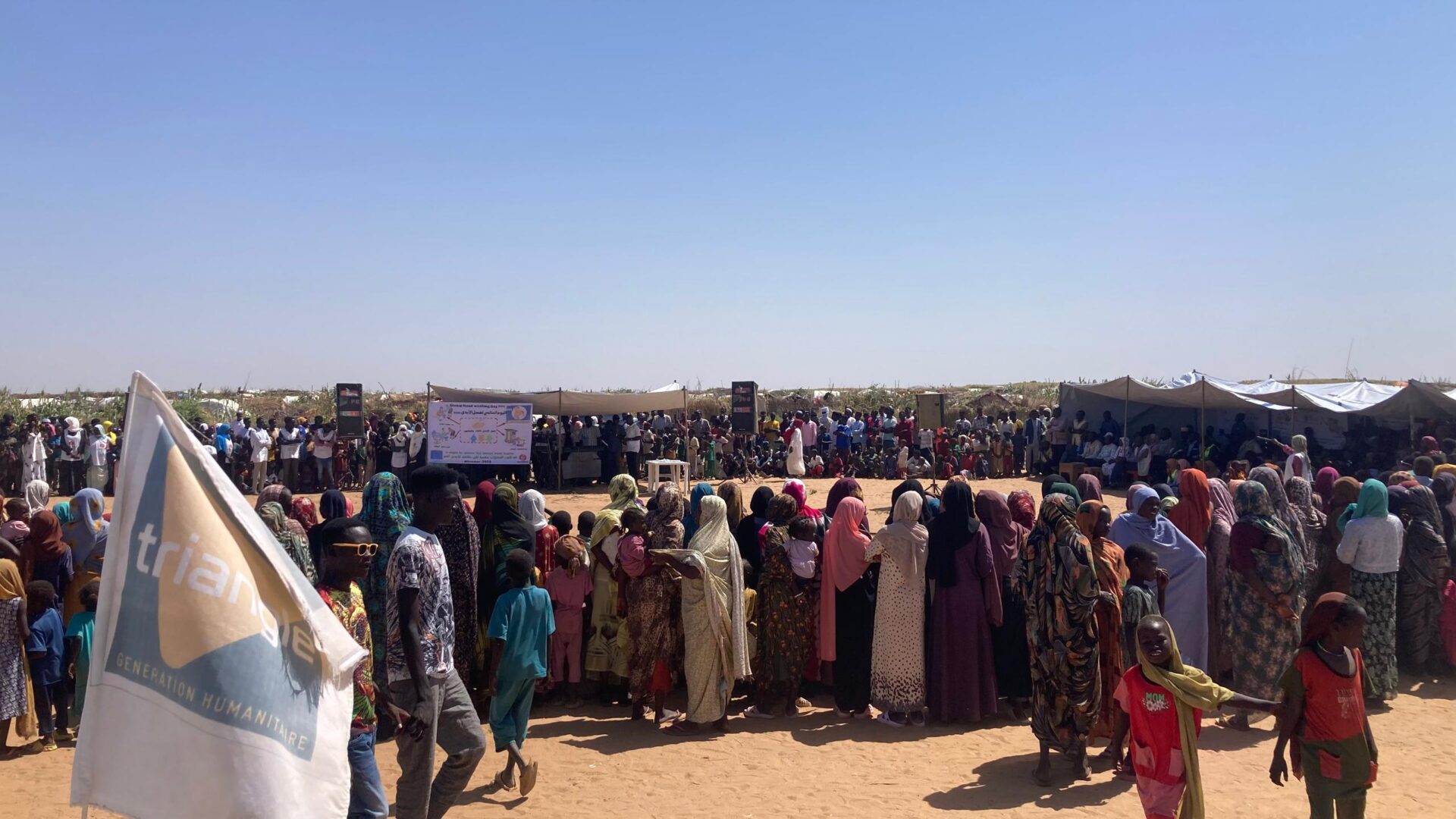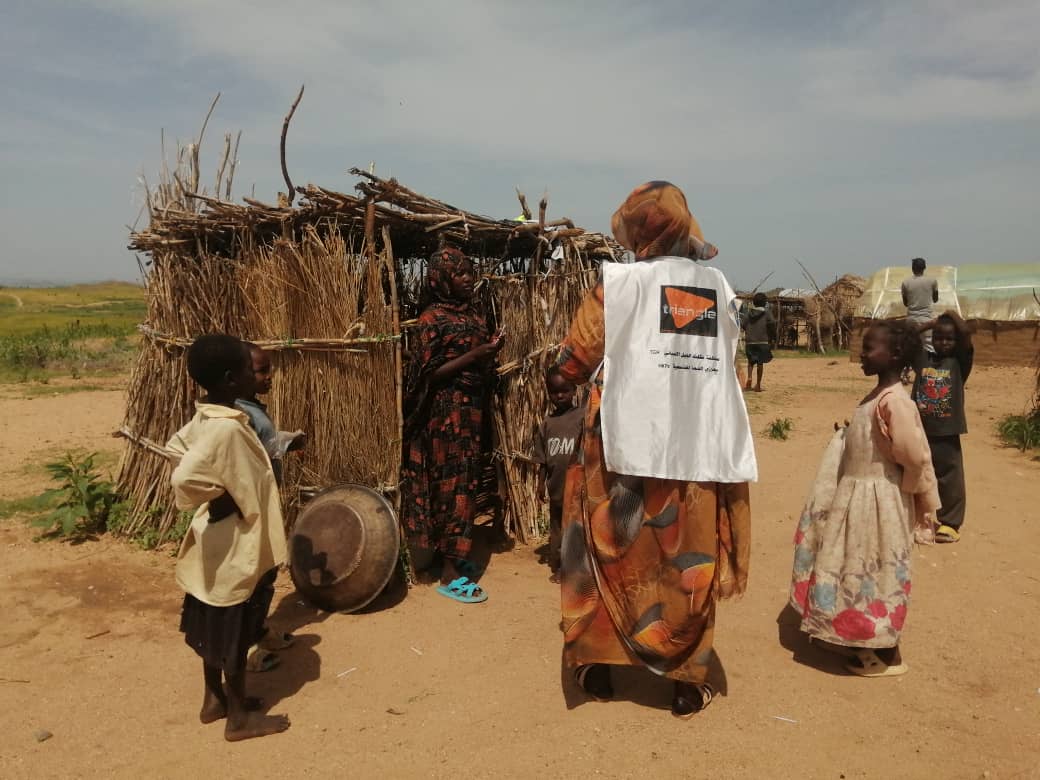- Sudan
- Directorate-General for Civil Protection and European Humanitarian Aid Operations (ECHO)
- About EU civil protection and humanitarian aid:
The European Union and its Member States are among the world’s leading donors of humanitarian aid.
Relief assistance is an expression of European solidarity with people in need all around the world. It aims to save lives, prevent and alleviate human suffering, and safeguard the integrity and human dignity of populations affected by disasters and human-induced crises.
Through the Directorate General for European Civil Protection and Humanitarian Aid Operations of the European Commission, the European Union helps millions of victims of conflict and disasters every year.
With headquarters in Brussels and a global network of field offices, the EU provides assistance to the most vulnerable people on the basis of humanitarian needs.
- Press
“In Sudan, a humanitarian tragedy passed over in silence”, by Solidarités International on courrierinternational.com (in french)
Two years ago, a violent civil war broke out in Sudan. A terrible war, silent and ignored by the world, but with tragically real consequences, and which has caused one of the most serious humanitarian crises of our time.

Since the first days of the conflict, teams from Triangle Génération Humanitaire, Solidarités International and Première Urgence Internationale, supported by the Directorate-General for Civil Protection and European Humanitarian Aid (ECHO), have been mobilised to respond to the immense needs of the affected populations.
In response to the humanitarian crisis caused by the civil war in Sudan, TGH, PUI and SI are working in consortium with Sudanese civil society organisations to support displaced and host communities affected by the war. This integrated, multi-sectoral emergency response project in West, Central and North Darfur, Khartoum and other areas severely affected by the conflict in Sudan is implemented by dedicated field teams.
Despite the dramatic circumstances of the war and their extremely difficult situation, the civilian populations in the affected areas remain hopeful for themselves, their loved ones and their communities.
Read their testimonials:
Mariam Halal Abdalla Balla – Vendor in the Geneina region
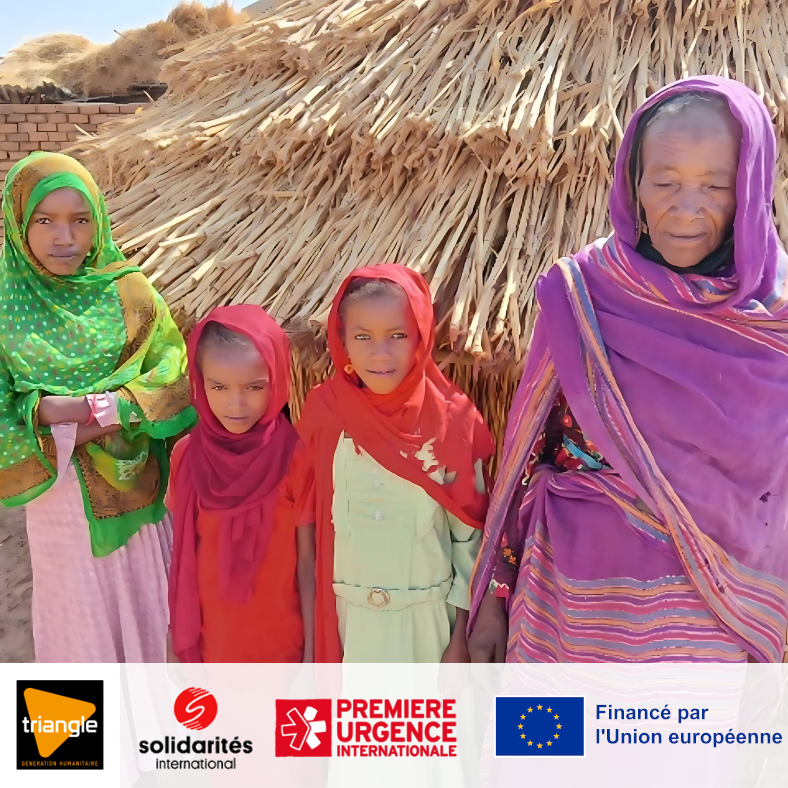
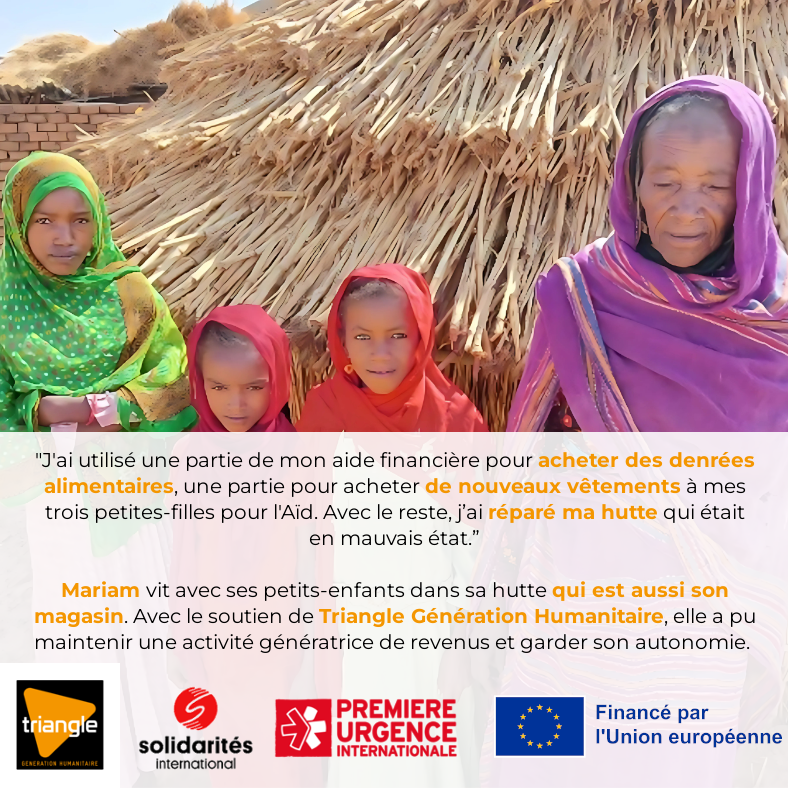
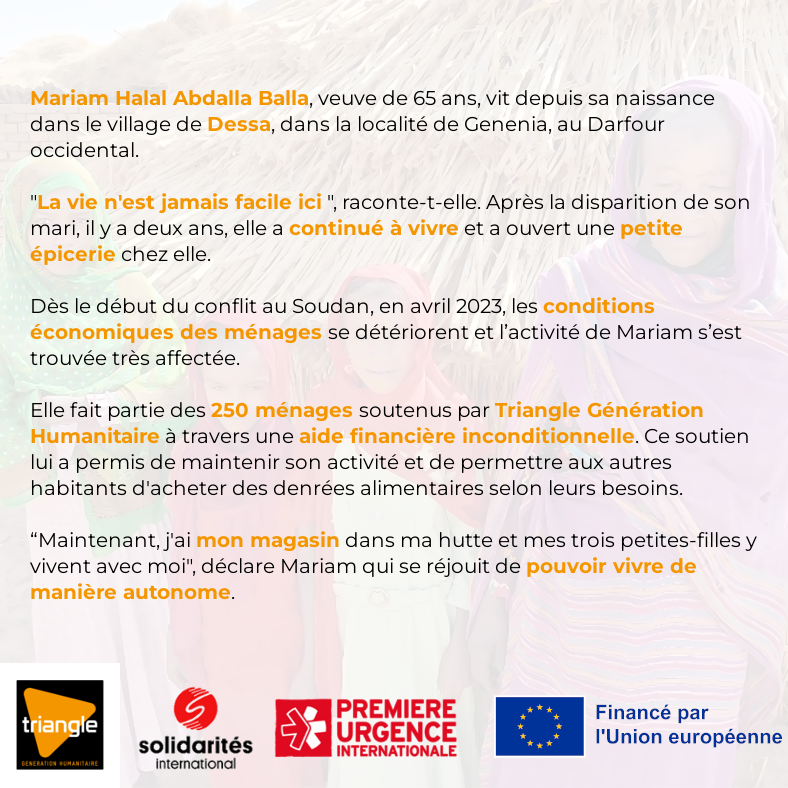
“I used part of my financial aid to buy food, and part to buy new clothes for my three granddaughters for Eid. With the rest, I repaired my hut, which was in poor condition.”
Mariam lives with her grandchildren in her hut, which also serves as her shop. With the support of Triangle Génération Humanitaire, she was able to maintain an income-generating activity and remain independent.
Mariam Halal Abdalla Balla, a 65-year-old widow, has lived in the village of Dessa, in the town of Genenia, West Darfur, since birth.
“Life is never easy here” she says. After her husband’s death two years ago, she continued to live and opened a small grocery store in her home.
Since the beginning of the conflict in Sudan in April 2023, household economic conditions have deteriorated, and Mariam’s business has been severely affected.
She is part of the 250 households supported by Triangle Génération Humanitaire through unconditional financial assistance. This support has allowed her to maintain her business and enable other residents to purchase food according to their needs.
“Now, I have my store in my hut, and my three granddaughters live there with me,” says Mariam, who is delighted to be able to live independently.
Maha, Promotion Hygiene Officer for Solidarités International
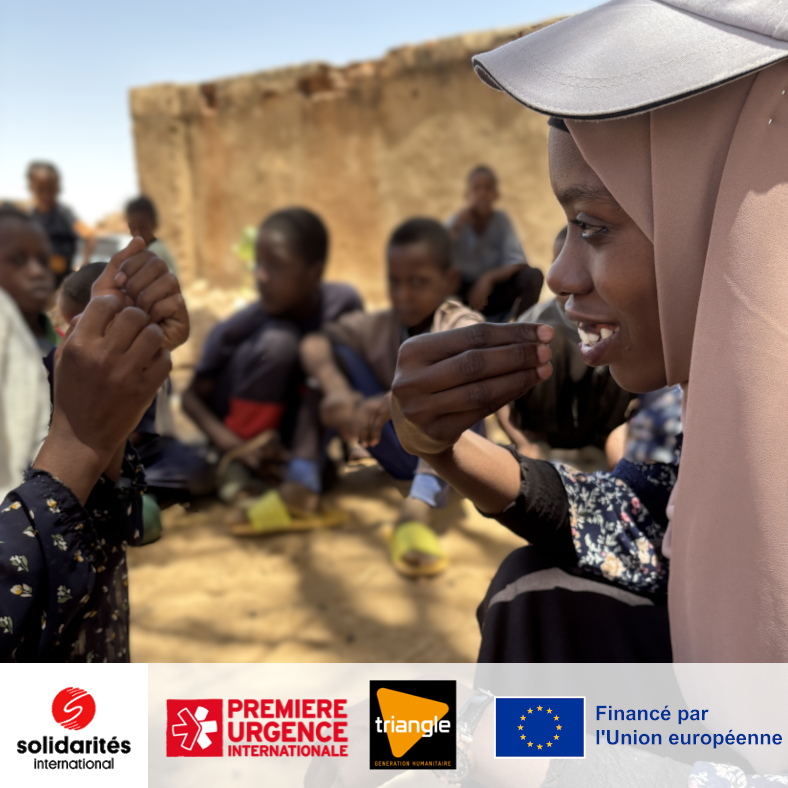
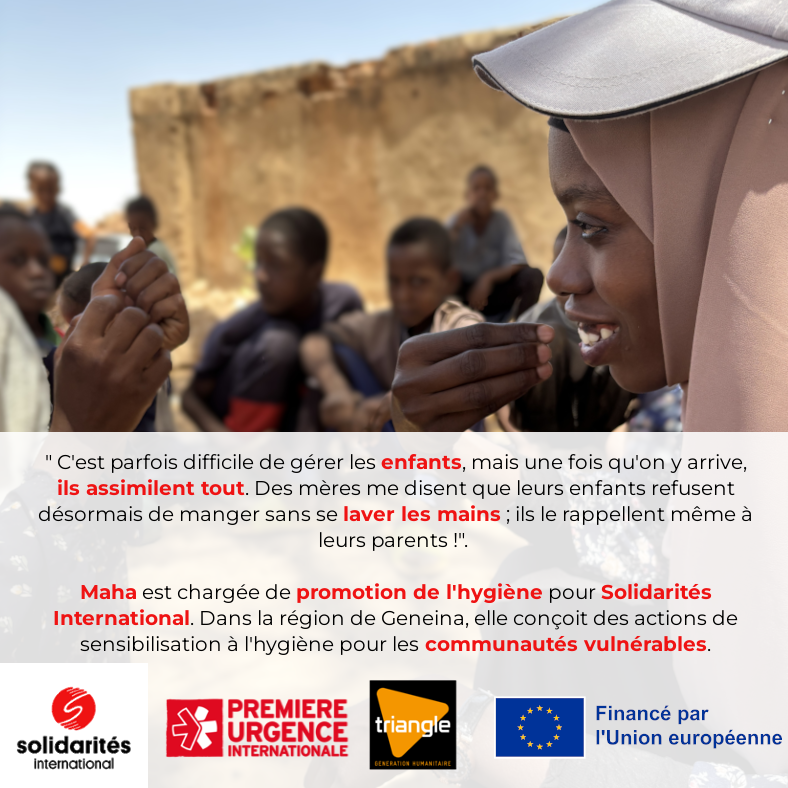
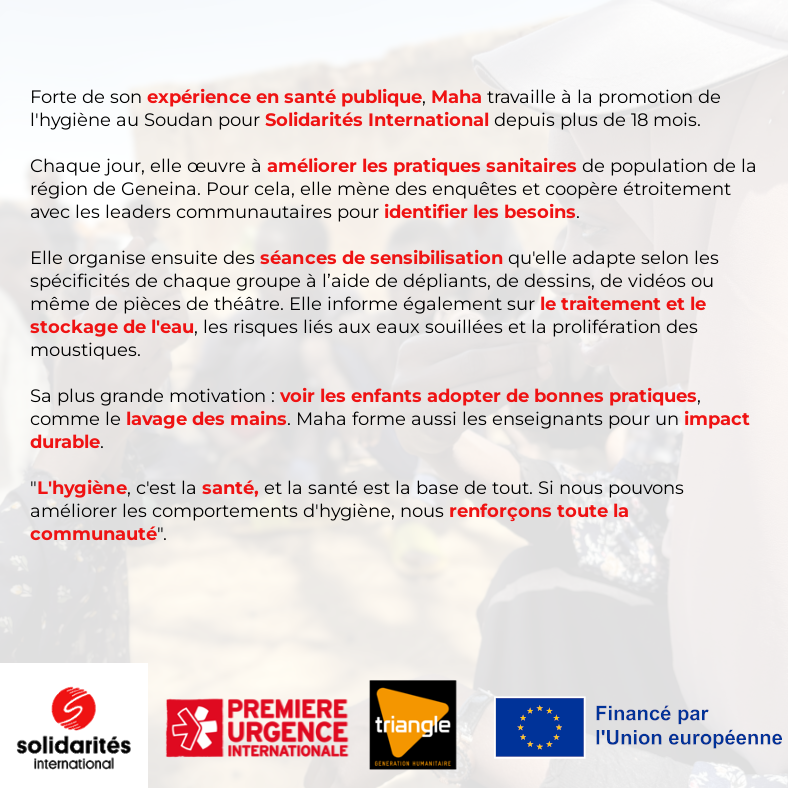
‘It’s sometimes difficult to manage children, but once we do so, they assimilate everything. Their mothers tell me that their children now refuse to eat without washing their hands; They even remind their parents to do so!’
Maha is a Promotion Hygiene Officer for Solidarités International. In the Geneina region, she develops hygiene awareness activities for vulnerable communities.
With her experience in public health, Maha has been working on hygiene promotion in Sudan for Solidarités International for over 18 months.
Every day, she strives to improve the hygiene practices of the population in the Geneina region. To this end, she conducts surveys and closely coordinate with community leaders to identify needs.
Shen then organises awareness-raising sessions that she adapts to the specific needs of every group using leaflets, drawings, videos and even plays. She also provides information on water treatment and storage, the risk associated with contaminated water and the proliferation of mosquitos.
Her greatest motivation: seeing children adopt good practices, such as handwashing. Maha also trains teachers for a lasting impact.
‘Hygiene is health, and health is the foundation of everything. If we manage to improve hygiene behaviors, we strengthen the entire community’.
Maha, Promotion Hygiene Officer for Solidarités International
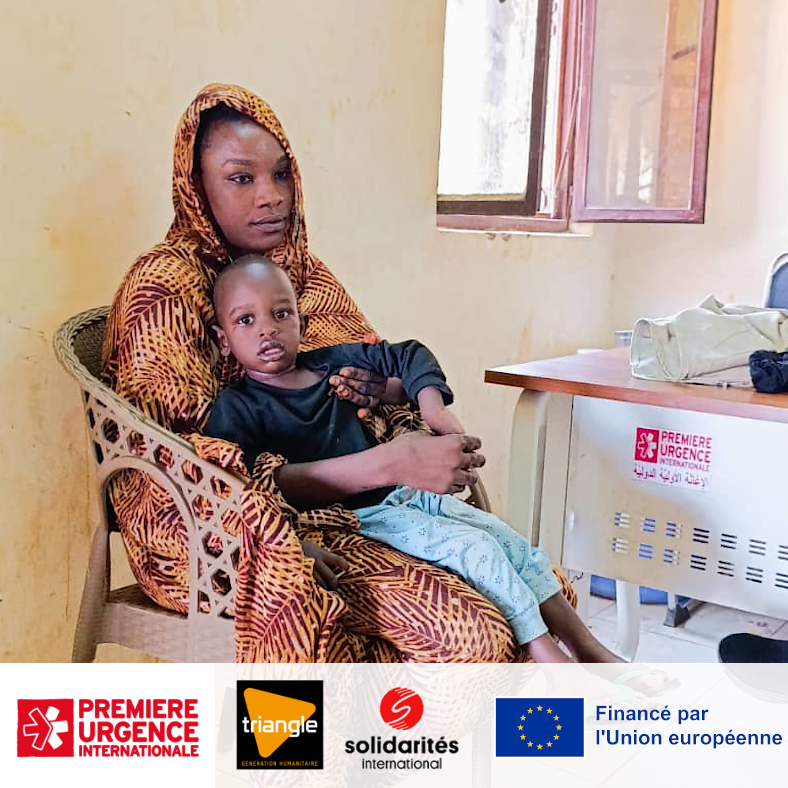
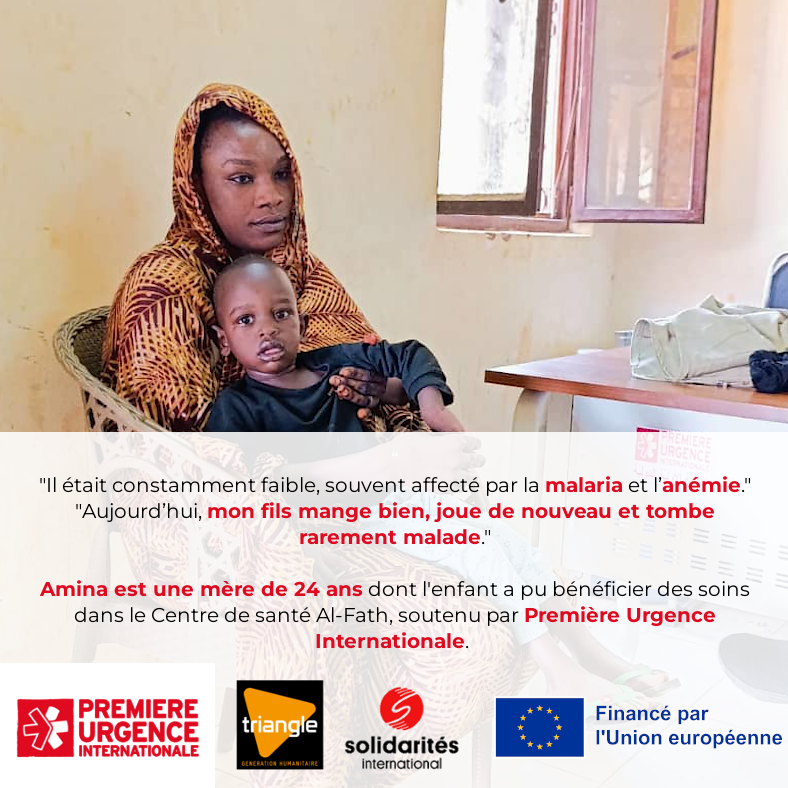
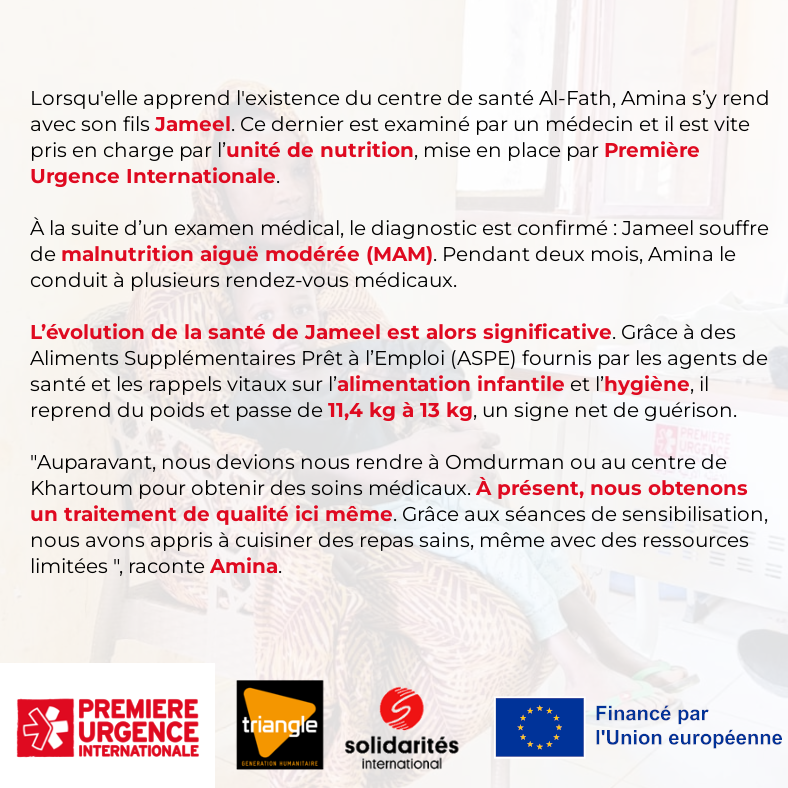
‘He was constantly weak and often suffered from malaria and anemia.’
‘Today my son eats well, plays again, and rarely gets sick.’
Amina is a 24 year-old mother whose child was able to receive medical care at Al-Fath Health Center, supported by Première Urgence Internationale.
When she learned about Al-Fath Health Cnter, Amina went there with her son Jameel. He was examined by a doctor and quickly admitted to the nutrition unit set up by Première Urgence Internationale.
Following a medical examination, the diagnosis was confirmed: Jameel was suffering from moderate acute malnutrition (MAM). Over the next two months, Amina took him to several medical appointments.
Jameel’s health improved significantly. Thanks to Ready-to-use Supplementary Food (RUSF) provided by health workers, along with vital reminders on infant feeding and hygiene, he gained weight, going from 11.4 kg to 13 kg, a clear sign of recovery.
‘Previously, we had to travel to Omdurman or downtown Khartoum to receive medical care. Now, we receive quality treatment right here. Thanks to awareness sessions, we learned how to prepare healthy meals, even with limited resources’, says Amina.
